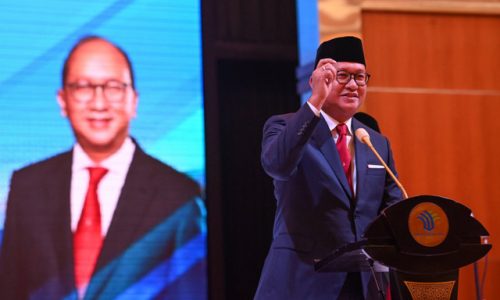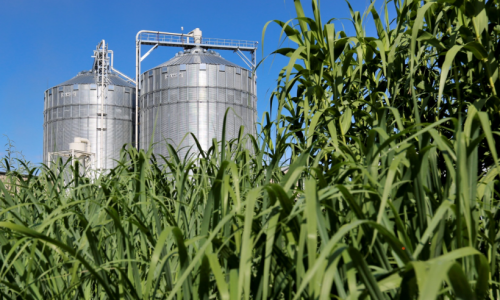The Indonesian National Research and Innovation Agency (BRIN) has extended an invitation to global nuclear industry stakeholders to collaborate on the development of 4th Generation nuclear reactors in Indonesia.
Topan Setiadipura, Head of the Nuclear Reactor Technology Research Center at BRIN, emphasized that the most suitable reactor for development in Indonesia is the High-Temperature Gas-cooled Reactor (HTGR) due to its high safety standards, economic viability, and minimal waste generations.
“The hope is that BRIN can carry out joint development. For the technology that BRIN is developing, suitable (partners) are Rosatom (Russia) or China,” Topan said as quoted by Antara, on March 28, 2024.
During the ATOMEXPO 2024 nuclear industry exhibition and forum, Topan outlined Indonesia’s plans to build a 40MWt capacity Pebble Bed HTGR technology named PeLUIt-40.
BRIN has proposed a budget of IDR 2 trillion (US$125.7 million) to the National Development Planning Agency (Bappenas) for the development of HTGR technology, with an estimated five-year working period. Topan highlighted that this budget, considering Indonesia’s economic strength, is relatively modest.
The development of PeLUIt-40 aims not only to increase electricity production through environmentally friendly energy but also to produce low-carbon hydrogen.
This initiative seeks to reduce Indonesia’s dependency on diesel fuel, especially in remote areas where State electricity compamny PT PLN incurs significant costs.
“Currently (PT) PLN is spending money to provide diesel in remote areas at around 24 cents/kWh, while our calculations for the PeLUIt-40 reactor (electricity costs) are 13 cents/kWh,” said Topan.
BRIN targets the approval from the Nuclear Energy Regulatory Agency (Bapeten) of the reactor design by 2025, alongside site testing, before proceeding to construction approval. Topan envisions construction starting in 2027, with completion in approximately three years, contingent on partnerships.
“We hope that in 2027 we can start construction, maybe let’s say it will take three years because the reactor is small. “But that will also depend on our partners,” said Topan.
HTGRs, characterized by their ability to operate at very high temperatures using gas as a coolant and graphite as a reactor moderator, are considered safer and capable of producing heat for industrial purposes, including hydrogen production.
Rosatom’s representative in Indonesia, Anna Belokoneva, affirmed their readiness to share nuclear technology development experiences to support Indonesia’s transition to clean energy. She emphasized nuclear energy’s crucial role in addressing climate change and achieving zero-carbon emissions.
“We are pleased to share our experience and expertise in the nuclear field, which Rosatom has been pursuing for more than 80 years,” she said.
Kirill Komarov, Director of International Business Development at Rosatom, highlighted the increasing global recognition of the importance of nuclear energy utilization.
Rosatom’s nuclear technology has been deployed in numerous countries worldwide, including those in Southeast Asia, with ongoing explorations for collaboration, including Indonesia.
“The good news is that more and more countries in the world believe that nuclear energy will not only last a long time, but will develop rapidly and their confidence in the use of nuclear is increasing,” said Kirill.
The International Atomic Energy Agency (IAEA) estimates a 2.5-fold growth in nuclear power generation by 2050, accounting for 9 percent of the global energy mix, signaling a promising future for nuclear energy worldwide.









